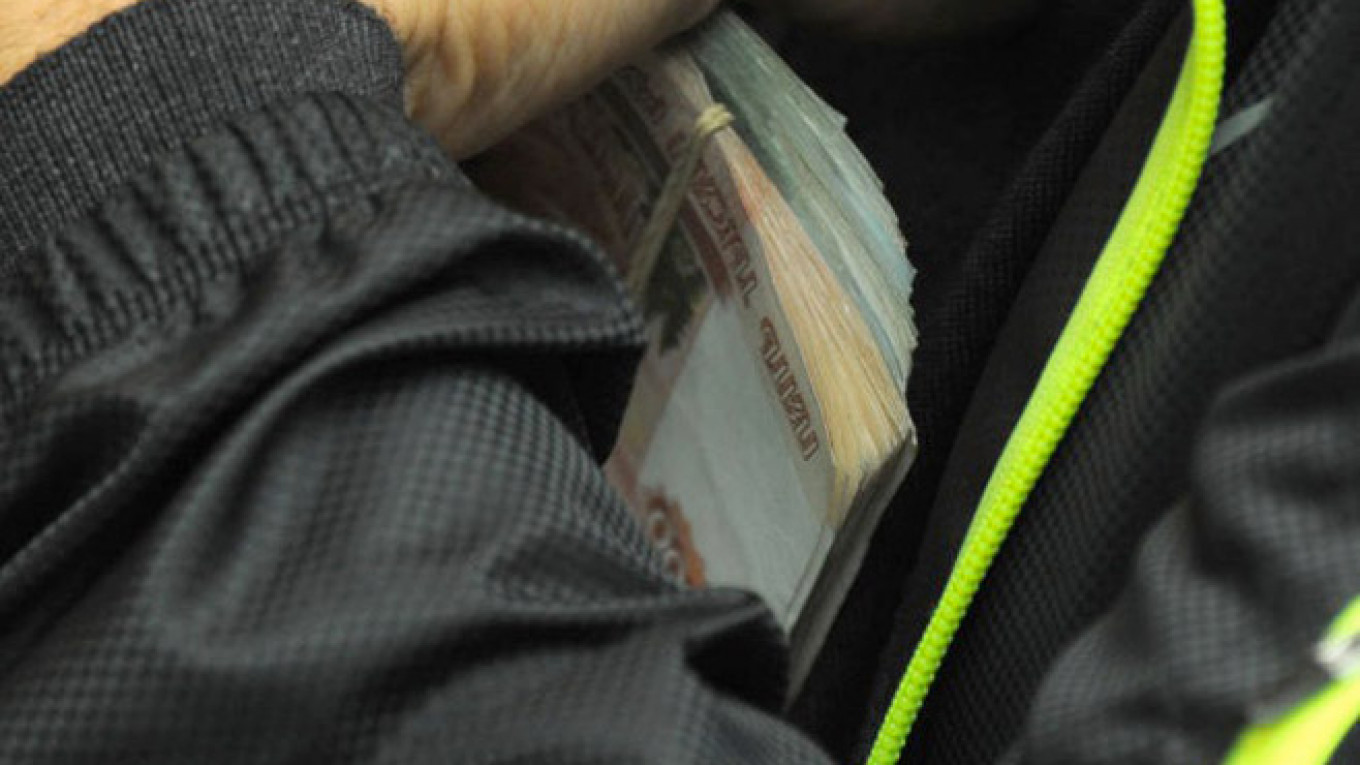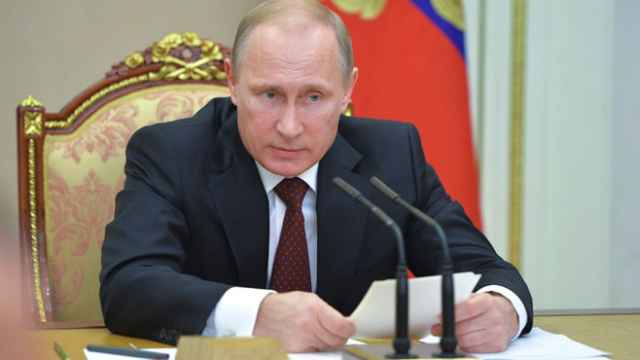Russia slipped three places to rank a dismal 136th out of 175 countries in Transparency International's annual latest corruption survey, unveiled Wednesday.
This is evidence that the Kremlin's anti-graft crusade declared three years ago has not worked, the watchdog's deputy chairperson Yelena Panfilova said in Moscow.
But a new campaign may follow, if the government's fear of public unrest outweighs the drive to cover up for sticky-fingered bureaucrats, she said at the presentation of the Corruption Perceptions Index.
"They're [the authorities] spreadeagled like the star on the [Kremlin's] Spasskaya Tower," Panfilova told The Moscow Times on the sidelines of the event.
With 27 points on a 100-point scale, Russia shared 136th position on the index with Cameroon, Iran, Kyrgyzstan, Lebanon and Nigeria, and outperformed Ukraine by one point.
Denmark, New Zealand and Finland topped the list as the least corrupt countries, while Sudan, North Korea and Somalia ranked at the bottom. Britain was 14th, and the United States 17th.
Russia was 127th last year and 133rd in 2012, but the number of points it has been awarded to put it in those slots has changed less than the level of statistical error, said Anton Pominov, head of Transparency International's Russia branch.
Russia is slipping in the rating despite its stable number of points because "the world's not standing still, and other countries fight their own corruption too," Pominov said.
This year's index was the 20th annual rating, but it has only used the same methodology since 2012, making it impossible to accurately track the dynamics of a country's corruption prior to that.
Russia has declared war on corruption three times since Vladimir Putin first came to power: shortly after his accession to the Kremlin in 2000, again under his ally and temporary replacement Dmitry Medvedev in 2008, and after Putin's return to the presidency in 2012.
But the situation has been steadily deteriorating since 2005, said Panfilova, who headed Transparency's Russian branch from its inception in 1999 until she was elected to the position of deputy chair of the watchdog's main office in October.
Russia lost $300 billion to graft in 2009, according to Transparency's figures from the most recent year for which statistics are available. The last official estimate, by the Prosecutor General's Office in 2006, put the figure at more than $240 billion.
Five Factors
The Berlin-headquartered watchdog listed five reasons for Russia's poor performance on the ranks.
- Corruption cases are stalled: Not a single high-profile official has been convicted of graft in Russia under Putin. A prime example is ex-Defense Minister Anatoly Serdyukov, implicated in a negligence case in 2012, but cleared last June.
- A campaign to avoid conflict of interest by having officials declare their business affiliations has also stalled.
- A lack of international cooperation on graft means that the few state servants who do get caught in illicit activity are usually able to move abroad while keeping their assets.
- The government's sweeping infrastructure and construction "mega-projects" are nontransparent, fostering graft allegations. According to independent estimates, up to half of the record $51 billion spent on this year's Sochi Olympics was lost to embezzlement (the allegations were never proven in court).
- Finally, independent NGOs and media have come under state pressure since Putin's return to the Kremlin in 2012, hampering whistle-blowing efforts.
"There is no point in speaking about a serious anti-corruption effort. No one believes in it," Pominov said.
Adding insult to injury, most Russian security services tasked with combatting graft, such as the FSB or police, have seen their own fair share of corruption scandals, though Panfilova said she was pinning some hope on a new anti-corruption department created by the Kremlin last year.
Maelstrom of Graft
No government official had commented on the report as of Wednesday, but Panfilova said some people in the Kremlin are sympathetic to the anti-graft effort — if only for self-preservation reasons.
"Part of the political class understands we need extraordinary measures, or the maelstrom of corruption and stagnation will swallow us all," she said.
The Russian economy has virtually ground to a halt through 2014, the situation exacerbated by a war of sanctions with the West over Ukraine.
The ruble has depreciated 38 percent against the dollar since the start of the year, and medics and teachers have taken to the streets in Moscow to protest austerity measures.
"On one hand, their constituents are beginning to suffer from what's going on," Panfilova told The Moscow Times, speaking about the current government.
"But on the other hand, how do they decide whom to sacrifice among themselves?" she said.
Contact the author at a.eremenko@imedia.ru
A Message from The Moscow Times:
Dear readers,
We are facing unprecedented challenges. Russia's Prosecutor General's Office has designated The Moscow Times as an "undesirable" organization, criminalizing our work and putting our staff at risk of prosecution. This follows our earlier unjust labeling as a "foreign agent."
These actions are direct attempts to silence independent journalism in Russia. The authorities claim our work "discredits the decisions of the Russian leadership." We see things differently: we strive to provide accurate, unbiased reporting on Russia.
We, the journalists of The Moscow Times, refuse to be silenced. But to continue our work, we need your help.
Your support, no matter how small, makes a world of difference. If you can, please support us monthly starting from just $2. It's quick to set up, and every contribution makes a significant impact.
By supporting The Moscow Times, you're defending open, independent journalism in the face of repression. Thank you for standing with us.
Remind me later.







